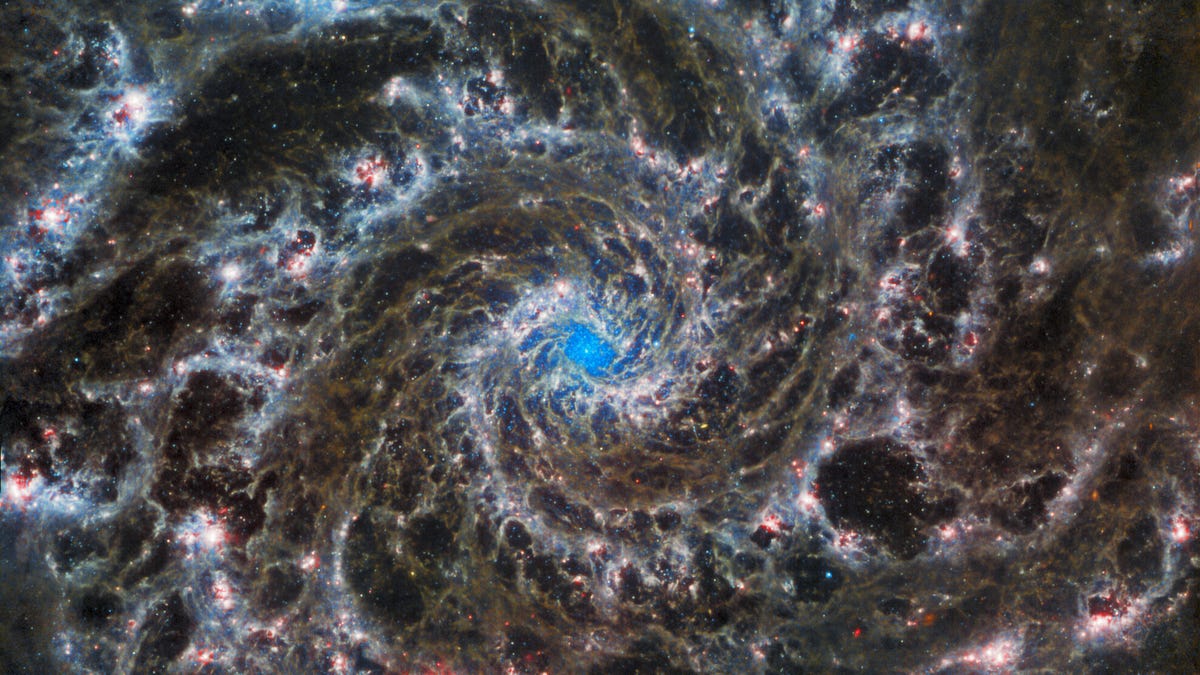
“These compositions provide a different way to experience the detailed information in Webb’s first data,” said Quyen Hart, a senior education and outreach scientist at the Space Telescope Science Institute, in a NASA release.
G/O Media may get a commission
Advertisement
“Similar to how written descriptions are unique translations of visual images, sonifications also translate the visual images by encoding information, like color, brightness, star locations, or water absorption signatures, as sounds,” Hart added.
The Southern Ring Nebula’s sound was two-fold. The nebula was imaged in both near-infrared and mid-infrared light, which highlights different features of the supernova remnant. If you listen closely, you’ll hear that the translated sound from the mid-infrared image is lower, corresponding to the fact that mid-infrared light has longer wavelengths than near-infrared light. On the whole, the Southern Ring audio is a little spookier than the Carina Nebula sound.
The exoplanet spectra—which is a graph of data points representing components of the gas giant’s atmosphere—sounds a bit like the long slides used in cartoons to indicate a falling anvil. The NASA team added ploinks to indicate points in the data that bore the signature of H20–water in the planet’s atmosphere.
Advertisement
The musical makeover of the Webb images comes on the heels of NASA’s sonification of the black hole at the center of the Perseus galaxy cluster. That sound, you’ll find, is a lot more ominous than the whimsical and ethereal vibes of the Webb soundscapes.
The Perseus audio was also transposed up dozens of octaves—the actual sound of ripples in the gas surrounding the Perseus black hole is about 57 octaves below middle C, which is about 262 Hz.
Advertisement
As the Webb telescope observes new targets, from dazzling deep fields to specific star clusters, we should expect more of these sonified images. They’re another way to experience the cosmos, and one that’s (for the most part) easy on the ears.
More: Hear the Sound of a Black Hole ‘Echo’